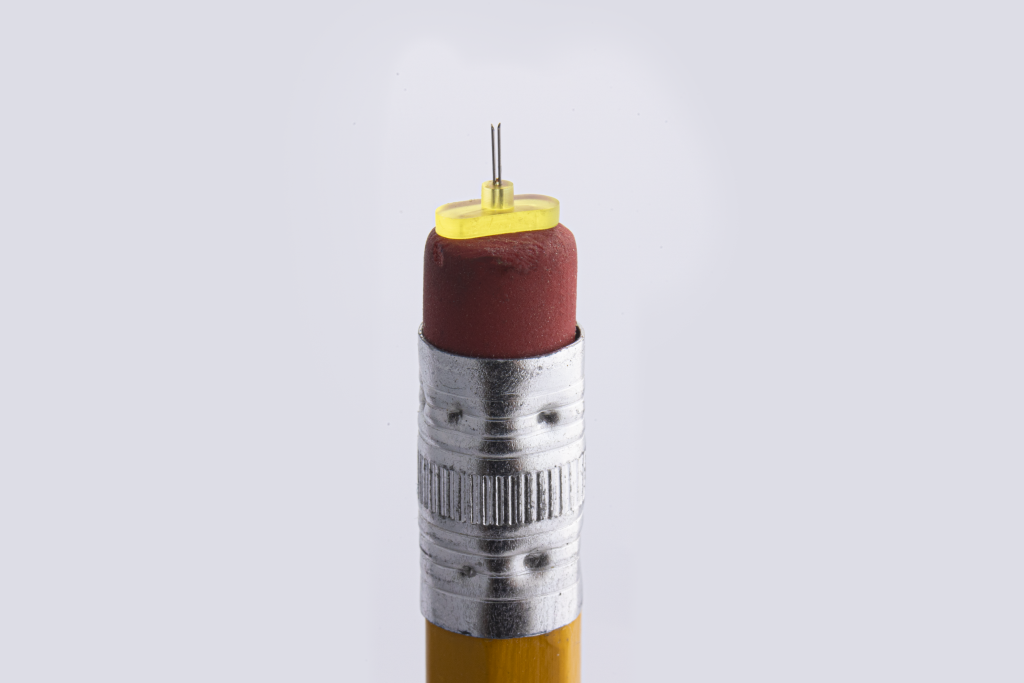Microscale 3D printer manufacturer Boston Micro Fabrication (BMF) has raised a $24 million Series D round led by Chinese finance service corporation Guotai Junan Securities.
Utilizing the funding, BMF aims to enhance its R&D efforts, expand and advance its end products, and fortify global partnerships in the fields of med tech and high-end manufacturing. This funding comes just one year following BMF’s successful $42 million Series C financing round in 2022.
“Miniaturization, precision, and complexity of devices are the major trends in industrial development. Despite this market pressure, traditional manufacturing processes struggle at the smaller scale companies are now demanding,” said Xiaoning He, Co-founder and CEO, BMF. “BMF’s technology can play an essential role in meeting this need. With the continued support of our investors, we will continue to empower and incubate products in related application fields and collaborate extensively with our partners to advance micro-scale additive manufacturing.”

PμSL technology transforms microscale 3D printing
Founded in 2016, BMF stands as the sole additive manufacturing entity with the ability to achieve superior precision at the 2μm scale. Collaborations with BMF for rapid prototyping or streamlined production of micro-scale components are close to 2,000 scientific research organizations and industrial firms spanning 35 countries globally, says the company.
BMF employs Projection Micro Stereolithography (PμSL) technology, integrating light, customizable optics, a high-quality movement platform, and controlled processing technology to craft the most precise and accurate high-resolution 3D prints in the industry. Through the amalgamation of diverse performance materials and correlated post-treatment procedures, BMF develops a novel precision manufacturing resolution.
“We’ve proven we can meet the needs of our customers, but we know that our technology can do more. Through our Research Institute in San Diego and multiple efforts on other projects being developed globally, we’re entering an era of self-driven innovation to identify new opportunities that are uniquely enabled by our technology,” said John Kawola, CEO-Global, BMF. “This funding ensures we can continue our unwavering commitment to our customers and partners, while giving us the resources to power new innovation.”
Recently, in an interview with 3D Printing Industy, BMF CEO John Kawola provided insights into BMF’s technology.
BMF’s growth strategy involves application development and differentiation. It targets markets requiring precision, capitalizing on miniaturization trends, and ceramic 3D printing. Kawola emphasizes user expertise, the complexity of ceramic printing, and the need for thermal management. The company excels in a competitive landscape, selling directly, understanding user needs, and staying ahead of industry shifts. BMF’s participation in the AM Forum illustrates its commitment to tangible value in a fast-evolving industry, says the CEO.

3D printing sector sees continued investment
Cloud- and API-based 3D engineering platform provider Metafold raised $1.78M in seed funding led by Differential Ventures with participation from Active Impact Investments, Jetstream, and Standup Ventures. The platform optimizes complex part design, bridging 3D printing hardware and software capabilities. It enhances sustainability by reducing raw materials and producing lighter, energy-efficient parts. The funds will address geometry challenges hindering 3D printing adoption. Metafold believes it has notably impacted biotech and sportswear markets.
Aalen-based large format 3D printer manufacturer Q.Big 3D concluded a €2 million series A funding round led by HZG Group. Notably, Q.Big 3D received investment from a long-term supporter, global engineering firm Manz AG, along with personal investment from Manz-Founder Dieter Manz. This funding coincided with the debut of Q.Big 3D’s Queen 1 “XXXL” large-format 3D printer. Following beta-testing in Autumn 2022, the company intensified sales efforts for the new printer, which was scheduled for end-of-year shipments.
What does the future of 3D printing for the next ten years hold?
What engineering challenges will need to be tackled in the additive manufacturing sector in the coming decade?
To stay up to date with the latest 3D printing news, don’t forget to subscribe to the 3D Printing Industry newsletter or follow us on Twitter, or like our page on Facebook.
While you’re here, why not subscribe to our Youtube channel? Featuring discussion, debriefs, video shorts, and webinar replays.
Are you looking for a job in the additive manufacturing industry? Visit 3D Printing Jobs for a selection of roles in the industry.
Featured image shows 3D printed micro fluidic device and needle. Photo via Boston Micro Fabrication.



